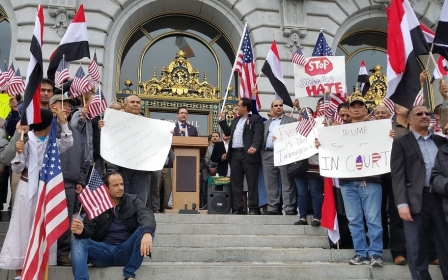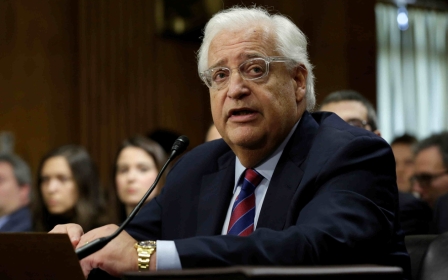US judge declines to halt revised Trump travel ban
A US federal court on Friday refused to put an emergency halt to President Donald Trump's revised travel ban, saying lawyers from states opposed to the measure needed to file more extensive court papers.
States led by Washington and Minnesota challenged Trump's original executive order, issued in January, which sought to restrict travel from seven Muslim-majority countries and stop refugees from entering the US.
Seattle US District Court Judge James Robart issued a temporary restraining order against the first order last month, and when Trump issued a narrower version of the ban on Monday, listing only six countries, opponents sought to halt its implementation as well.
Robart on Friday declined to automatically apply his first order to the new ban. He asked the states and the administration to present arguments reflecting the changes introduced by the new travel ban.
"Accordingly, the court also declines to resolve the apparent dispute between the parties concerning the applicability of the court's injunctive order to the New Executive Order until such time as an amended complaint that addresses the New Executive Order is properly before the court," Robart wrote.
Washington state's attorney general had argued that the stay should extend to the new order, which he said has the same constitutional problems.
President Trump's revamped travel ban has faced a limited legal setback though, after a federal judge in Wisconsin halted enforcement of the directive that would deny US entry to the wife and child of a Syrian refugee already granted asylum.
In a preliminary restraining order issued Friday that applies only to the Syrian man and his family, US District Judge William Conley in Wisconsin said the plaintiff "is at great risk of suffering irreparable harm" if the directive is carried out.
The man chose to remain anonymous because his wife and child are still living in war-wracked Aleppo.
'Putting a new coat of paint on the Muslim ban doesn't solve its fundamental problem, which is that the Constitution and our laws prohibit religious discrimination'
-Omar Jadwat, ACLU
The new order denies US entry to all refugees for 120 days and halts for 90 days the granting of visas to nationals from Syria, Iran, Libya, Somalia, Yemen and Sudan. It is due to take effect on 16 March.
The first order also applied to citizens of Iraq, but that country was dropped from the new list.
New York, Oregon, and Massachusetts joined Washington and Minnesota's challenge against the second ban on Thursday. Hawaii on Tuesday filed the first legal challenge to the new executive order. Maryland said it would also back the case.
A court of appeals had upheld Robart's decision to suspend the first executive order, which became known as the Muslim ban, prompting the Trump administration to draft a new, less far-reaching, decree that might evade legal challenges.
Still, immigration advocates are decrying the travel restrictions, dubbing the second executive order, Muslim Ban 2.0.
Last month, Trump described Robart as a "so-called judge," drawing outrage from what his opponents saw as lack of respect for the judicial system. "See you in court," the president tweeted after the appeals court's decision.
Meanwhile, the American Civil Liberties Union on Thursday filed its own complaint on behalf of several refugee assistance groups.
"Putting a new coat of paint on the Muslim ban doesn't solve its fundamental problem, which is that the Constitution and our laws prohibit religious discrimination," said Omar Jadwat, director of the ACLU's immigrant rights project.
"The further President Trump goes down this path, the clearer it is that he is violating that basic rule."
The suit alleges that the new executive order violates the constitutional protection of freedom of religion in that it is "intended and designed to target and discriminate against Muslims, and it does just that in operation".
"Rarely in American history has governmental intent to discriminate against a particular faith and its adherents been so plain," the complaint says, alleging the new order will cause "irreparable harm" and asking for an injunction.
A federal judge in Maryland, Theodore Chuang, has scheduled a hearing in the case for 15 March - the day before the measure is to take effect.
New MEE newsletter: Jerusalem Dispatch
Sign up to get the latest insights and analysis on Israel-Palestine, alongside Turkey Unpacked and other MEE newsletters
Middle East Eye delivers independent and unrivalled coverage and analysis of the Middle East, North Africa and beyond. To learn more about republishing this content and the associated fees, please fill out this form. More about MEE can be found here.




